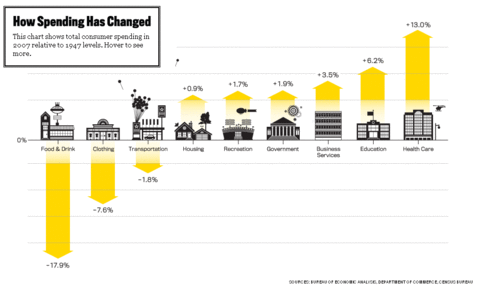We’ve been drifting in the economic doldrums for the past few years. Wondering how to get ahead, or just stay even, many wonder if there is anything to be grateful for this holiday season.
Everyone has to find their own answer, of course, but I recently came across a speech Bobby Kennedy gave in 1968 about economic performance and the good life. In short, he says don’t be fooled by ‘economic indicators’ like the Gross National Product. If you’re looking for true value (and something to be grateful for) look to poetry, family, intelligent discourse, and public service.
Thanks Bobby. It’s good to be reminded of what really counts.
Our Gross National Product now is over 800 billion dollars a year. But that Gross National Product, if we judge the United States of America by that, that Gross National Product counts air pollution and cigarette advertising and ambulances to clear our highways of carnage, it counts special locks for our doors and the jails for the people who break them, it counts in the destruction of the Redwoods and the loss of our natural wonder and chaotic sprawl. It counts napalm.
And it counts nuclear warheads and armored cars for the police to fight the riots in our cities. It counts with it rifles and fixed knives and the television programs which glorify violence in order to sell toys to our children. The Gross National Product does not allow the health of our children, the quality of their education, or the joy of their play, it does not include the beauty of our poetry, the strength of our marriages, the intelligence of our public debates, or the integrity of our public officials.
It measures neither our wit, nor our courage, neither our wisdom, nor our learning, neither our compassion nor our devotion to our country. It measures everything in short, except that which makes life worthwhile. And it can tell us everything about America except why we are proud that we are Americans.


